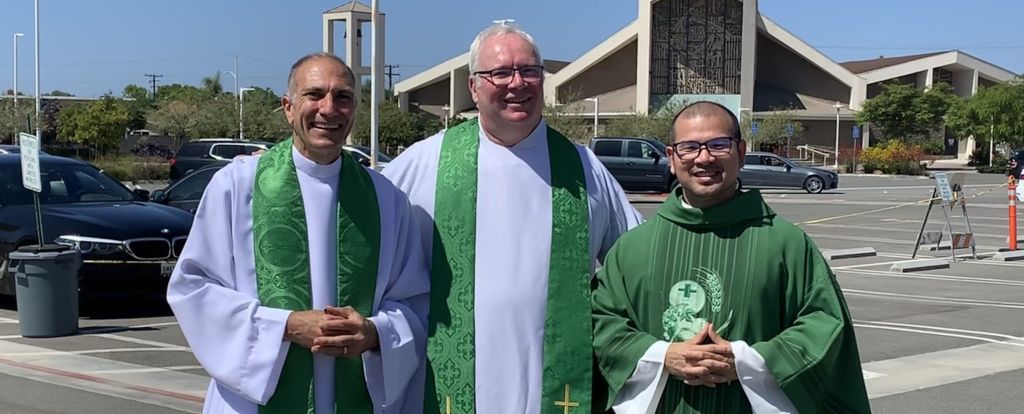
Pastoral Message – April 18, 2021
“Those who say, ‘I know him,’ but do not keep his commandments are liars.”
I love this passage from John because he doesn’t pull any punches. Like any good New Yorker, he tells it like it is. What part of “liar” don’t you understand? Of course, John is merely repeating what Jesus said a bit more tactfully in the upper room: “If you love Me, you will keep My commandments.”
Neither Jesus nor John are giving out helpful hints for happy living. They are talking about commandments! We are not free to pick and choose which commandments we like to follow and which are too hard. Keeping His commandments requires a comprehensive effort involving diligence and focus. Knowing God and keeping His commandments are linked. By obeying Jesus, we manifest our love for Him, truly experience His love for us, and truly know Him.
We often hear that Protestants believe in “faith alone,” while Catholics believe in “faith and works.” While this may be an oversimplification, today’s passage seems to challenge the belief of “faith alone” and to support the idea that works are required as well. In other words, to know Jesus is to have faith; to keep his commandments is to perform works. This seems to make total sense. However, for the past 500 years, this has been a source of great controversy between Catholics and almost all Protestants.
While many Protestants would concede that both faith and works are important in salvation, they also hold that believers are justified solely by faith. They believe that Jesus Christ is the only One who deserves credit for doing the work of salvation. They firmly believe that Christians are saved by God’s grace through faith alone. At their best, works are simply evidence of genuine salvation that prove the sincerity of one’s faith. For Catholics, this means that authentic “saving faith” reveals itself through works.
In response to the Protestant doctrine of “sola fides” (faith alone), the Council of Trent held that when we come to God we are justified without any merit on our part. Neither our faith nor our works – nor anything else – merits that justification. But there is also more to justification than this. We believe that, at the beginning of the Christian life, God forgives our sins and gives us the gift of righteousness. But He also wants us to grow in righteousness over the course of our Christian lives.
The justification that takes place at our baptism continues, grows, and develops with our cooperation as we repent our sins, obey the commandments, obtain sacramental graces, live a prayerful life, do corporal and spiritual works of mercy, etc. Justification is a life-long process and it entails constant spiritual battle between being spiritually diligent and being spiritually lazy. We believe that Christians grow in virtue and are sanctified by yielding to righteousness. Through our good works we “increase in that justice received through the grace of Christ and are further justified.”
The Catholic Church has never taught we “earn” our salvation. We do not need to do good works to be forgiven. Salvation and forgiveness are freely given to anyone who becomes a child of God. Yet, works are important because they represent the theological virtue of charity which unites us more closely to God. That means that, if one has faith combined with charity, then one has “faith working through love.” That kind of faith, which Catholic theologians refer to as “faith formed by charity,” would – of itself – unite us to God spiritually.
Pope Benedict XVI taught that “Luther’s phrase ‘faith alone’ is true, if it is not opposed to faith in charity, in love. Faith is looking at Christ, entrusting oneself to Christ, being united to Christ, conformed to Christ, to his life.” A careful look shows that we should not simply frame the Protestant-Catholic discussion in simple terms of “faith alone” versus “faith and works.” The entire dispute can be avoided if we all agree that we are indeed saved by grace AND we are also created for good works and should live in them.
Put another way, we are saved by God’s grace alone but that grace is reflected in a faith that works in love. That’s why, if we truly know Jesus, we will desire nothing more than to keep His commandments. In Matthew’s Gospel Jesus said to the rich young man: “If you would enter life, keep the commandments… You shall not kill, you shall not commit adultery, you shall not steal, you shall not bear false witness, you shall honor your father and mother, and, you shall love your neighbor as yourself.” It certainly sounds like there is more to knowing Jesus than faith alone.
Fr. Mike

